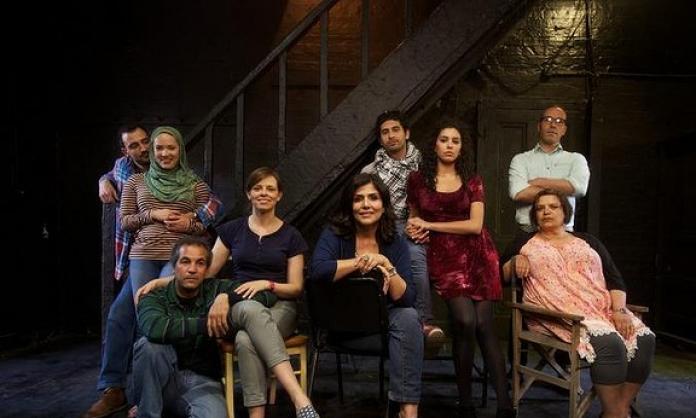Tales of a city by the sea, a play depicting a love story in Gaza, has come under attack from the Victorian Liberal Party and Zionist organisations.
They have demanded it be withdrawn from this year’s Victorian Education Certificate (VCE) drama list, which is studied by more than 1,300 senior high school students.
The play, written by Palestinian poet Samah Sabawi, is one of 16 included in this year’s curriculum.
Set against the backdrop of Operation Cast Lead, Israel’s brutal 22-day assault on Gaza in 2008-09, the play tells the story of Palestinians living under occupation, siege and bombardment. However, according to Dvir Abramovich, the chair of B’nai B’rith Anti-Defamation Commission, Sabawi’s love story portrays Israel as a “blood-thirsty, evil war-machine”.
On 9 May, the Victorian Liberals also called for the play to be banned. The Liberal MP for Kew, Tim Smith, demanded to know why “an anti-Israel play is being taught to our children”. Smith, who had the backing of party leader Matthew Guy, repeated – word for word – Abramovich’s claim that the play portrayed Israel as “a blood-thirsty, evil war-machine”. Smith was joined in his attack by MPs David Morris and David Southwick.
However, when Liberal MPs were questioned in parliament if they had bothered to read or see A tale of a city by the sea before forming their opinions of it, their response was stone cold silence.
The following day, in a post on his official Facebook page, Smith went further, labelling the play “anti-Semitic”. He provided no evidence to back this allegation.
Education minister James Merlino rejected calls for the play to be taken off the syllabus.
Sabawi has rejected both Zionist and Liberal Party claims, asking “Do we need to tell an Israeli love story every time we tell a Palestinian one?” In a statement issued on 9 May, Sabawi pointed out that that the play was being opposed by “interest groups who failed to see the world outside their ideological filters”, and that it was impossible to “write about ordinary lives in Gaza without writing about the Palestinian people’s daily struggle for normalcy in a war zone”.
The campaign against Sabawi’s play is not the first time that the Zionist lobby in Australia has called for the censorship and banning of theatre works that diverge from the Zionist narrative about the Israel-Palestine conflict.
In 2009 and 2010, Zionist organisations in Melbourne and Perth staged protests against the performance of British playwright Caryl Churchill’s Seven Jewish children, written in the immediate aftermath of Operation Cast Lead.
In both instances, the Zionist opponents of Sabawi and Churchill’s theatre pieces had not bothered to read or see the plays before deeming them “offensive” “racist” or “anti-Semitic”.
The real offence caused by both plays is that they humanise the Palestinian experience under Israeli occupation, siege and apartheid.
Both Sabawi’s and Churchill’s lovingly crafted plays pack a punch precisely because they depict Palestinians as ordinary human beings, who love, cry, dream, get angry, feel joy and mourn – just like the rest of us. Sabawi’s play in particular not only exposes the deplorable conditions faced by Palestinians but also reveals that love and hope can exist even in the most oppressive environments.
The attack on Sabawi’s play is not an isolated incident, but part of the broader campaign by the Israeli state and its supporters to demonise Palestine solidarity activism and censor anything that sheds light on the situation faced by Palestinians.








